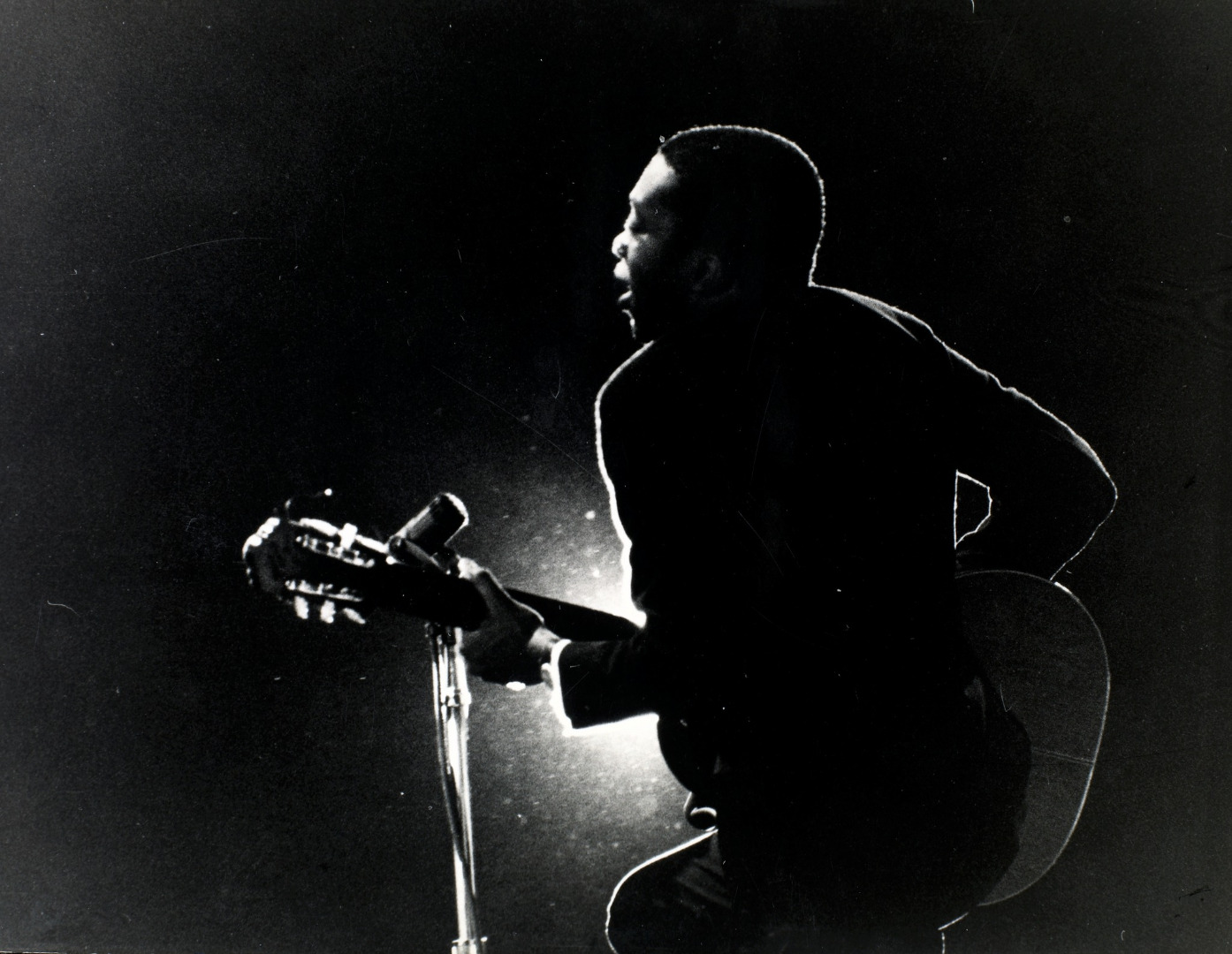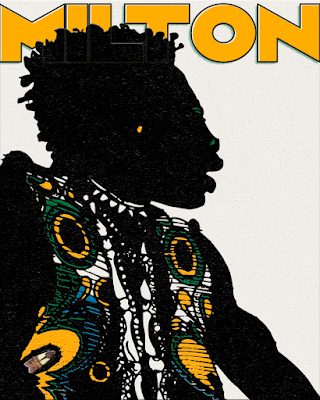With the albums ‘Courage’ from 1968 and ‘Milton’ from 1970, Milton Nascimento became one of the most influential musicians in Brazilian Popular Music, a symbol of power and uniqueness.
Milton Nascimento he hadn’t reached the age of 25 when he recorded his debut album, but he sounds experienced, as if he’d been at the balls of life for a while. In fact, it’s just that: Bituca, as he was known among friends, for years he had been working as a musician at night in Minas Gerais while venturing out writing his own songs, which gradually became known.
The final turning point was Crossing (1967), acclaimed with the second place in the II International Song Festival (FIC) from 1967. An instant classic, the partnership with the lyricist friend FernandoBrant became milton the new voice to be followed in the affluent MPB scene of the time. Another original, “Morro Velho”reached seventh place at the same festival, which also elected Bituca as “the best interpreter”. The success at the nationwide event accelerated his debut in a long play format, at the invitation of the record company. Codileprecisely responsible for the official album of FIC.
Named after him, as was customary at the time, this unique album is the perfect calling card for the respected artist who milton wanted to become – which it did not take long to happen, by the way. Everything is already there Milton Nascimento, as efficient (and discreetly) as the most mineiro carioca would be capable of: the pleasant and complex melodies, the meek and enveloping timbre floating over enigmatic verses of intimate stories, the intricate arrangements with delicate textures.

Short and unpublished, the ten tracks explore the different styles through which milton circulated so well in the following decades. Less attentive ears can interpret it as a bossa nova album, even though it bumps into jazz, samba and even the newly emerged tropicalism, in addition to summoning African and regional rhythms along the way. Everything was duly contemplated by the pianist’s inspired arrangements. Luizinho Eçawho led the group Tamba 4, here responsible for the instrumentation. This is probably the least “out of the box” album of his career. milton, but even tamed, he seems comfortable and inspired, leading the guitar with ease, his voice expressing self-awareness.
Despite the potent omnipresence of Crossing (strengthened by the epic arrangement of Eumir Deodato), are the songs written by milton alone that best exhibit his virtuosity as a storyteller: in addition to the aforementioned “Morro Velho”, “Salt Song” and the instrumental “Wind vane”, with a remarkable flute solo by Danilo Caymmi, (all these remembered in the recent last tour, The Last Music Session). Each one in its own way, the songs denote other interesting characteristics of the body of work of Milton: the melancholy nostalgic look of its lyrics and the natural sophistication with which it cradles happy and painful melodies.
Even resonating less than the other albums, Milton Nascimento today it is understood as one of the most consistent debuts by a singer-songwriter of that generation. renamed later
in Crossing (and with the order of the tracks changed, to capture the success of the first hit), the album represents a mature artist ready for more ambitious flights, which happened on the following album, Courage, recorded in the United States. More than that, in a way that’s just his, milton warned us that he was not in this to go unnoticed.
Courage (1968)

Despite being considered the second album of unpublished Milton NascimentoCourageis a rereading of his first project focusing on the foreign market. On the unusual journey, milton recalls with nostalgia:
It was a weird thing, because I was leaving Minas Gerais, appearing at a festival and, suddenly, I was in New York, in one of the best studios. I didn’t believe that such a thing could exist,” he told the Rolling Stone Brazil in 2011.
In fact, the three days’ work in the studio Van Gelder (actually in New Jersey), known for its jazz recordings, lends an air of international sophistication to Courage. No less than seven of the songs from Milton Nascimento are on the album, this time rearranged and conducted by maestro Eumir Deodato. Still the same at heart, the songs sound grander, with hints of Brazilianness accentuated by the percussion of Airto Moreira.
Among the unpublished tracks, the title track, with lyrics by the first partner, stands out. Marcio Borges and adapted into English by Paul Williams. Renaming half the songs – “Crossing” turned “Bridges” (also sung in English), “Salt Song” turned “Saltworkers Song” etc -, milton allows itself to look outside without losing any trace of Brazilian identity.
Is at Courage what milton the tradition of being very well accompanied by international musicians begins – here is the pianist Herbie Hancockwhat milton met at a soirée at the house of Mark Valley. In addition to Hancock, who add their tasteful virtuosity to every track, more than 40 musicians contributed strings and woodwinds. Recorded between December 1968 and February 1969 with production by creed taylor, Courage it is work that lives up to the universal potential of
music from miltonalthough far from great experimentalism.
If it wasn’t the definitive passport to the international market, Courage at the very least it stamped new territories. The iconic photo of Pete Turnerspecializing in black artists, captures milton forming a heart with your hands. On the back cover, a text by Ralph J. Gleasonco-founder of Rolling Stone USA, exalts the universality of the still unknown Brazilian:
“In this world of so many different peoples, there is now one more whose music is able to ‘speak’ all languages. And that just brings us great joy!”
Milton (1970)

By the turn of the 1970s, with three albums under his belt and more used to the stage, milton
Birth he was already an artist prone to sonic adventures. Or maybe he still wanted to prove something to himself. intentional or not, milton represents a break with the initial phase of his career.
The cover, illustrated by Kélio Rodrigues, displays a powerful African king and denotes a tendency to focus on the roots. With the strong support of the band Imaginary Sound (Wagner Tiso, Zé Rodrix, Tavito, Frederyko, Luiz Alves and Robertinho Silva, beyond the percussion Naná Vasconcelos), milton unveils a lighter, freer and audacious artist. The air of novelty is evident in “For Lennon and McCartney”. Composed during a pasta dish by friends Marcio Borges, Fernando Brant It is
Lô Borges (younger brother of marcio), the opening track brings a rocker swing and one of the most emblematic verses ever recorded by Milton: “I’m from South America / I know, you won’t know”.
The other share of Lo It is marciothis time in direct partnership with miltonresulted in “Clube da Esquina”. True gem of the record, the song packed by the voices and guitars of milton It is Lo and the
seed of the creative union that would result in a joint project two years later – “only” the most important album of the career of milton and probably Brazilian music. Not coincidentally, the modern sound of milton seems only to anticipate the exuberance and experimentalism abounding in Corner Club.
Another way to describe milton is like one of the most “cinematic” products of the discography of Bitucain this case, literally. “Latin Song” It is “Maria Three Sons” were written for the soundtrack of You
gods and the dead, in Ruy Guerra (the singer even made a cameo in the film, playing the bandit Dim Dum). Originally released with ten songs, milton it was remastered in 1994 and gained the addition of four tracks recorded for another filmdime, The golden beast, that offer the album a high-spirited ending. beyond the powerful “The Branch Man”the highlight is “Penny Theme”instrumental taken to berimbau remembered in recent shows.
Instigating curiosity with non-obvious choices and not afraid to dare, milton continued to sound different from its peers in MPB. But the best, surprisingly, was yet to come.
80 years of music
Courage (1968) and Milton (1970) are some of the albums reviewed in Special 80 Years of Musican exclusive edition of Rolling Stone Brazil dedicated to the 1942 Generation, which brings together essential names in MPB, such as Gilberto Gil, Caetano Veloso, Paulinho da Viola and the own Milton Nascimento, as well as a global overview of those born this year. The printed special is already on newsstands and digital newsstands. Click here to learn more.
Source: Rollingstone
Earl Johnson is a music writer at Gossipify, known for his in-depth analysis and unique perspective on the industry. A graduate of USC with a degree in Music, he brings years of experience and passion to his writing. He covers the latest releases and trends, always on the lookout for the next big thing in music.








